- Home
- Helen Dunmore
Birdcage Walk Page 8
Birdcage Walk Read online
Page 8
‘I have never been to the other side,’ she said, as if to herself.
‘Then I shall take you,’ said Augustus with a ponderous gallantry I would have mocked on any other night. He bent towards her and I saw tenderness on his face. For once he did not look so very much like a sheep. ‘We shall hire a boatman, and he can row us down the Gorge as far as the sea, if you would like it.’
‘He’d need to be a strong boatman,’ said Hannah.
‘Lizzie must come with us. Will you come, Lizzie?’ asked my mother.
‘Where must she come?’ asked another voice. He had come up behind us, from above. I had been looking for him to appear from the other direction. I jumped, in spite of myself and even though I knew his voice almost instantly. But Mammie answered calmly:
‘We were talking of a trip across the river, and now Augustus suggests that we should hire a boat and go down the Gorge.’
‘Lizzie doesn’t like the water,’ said Diner, and I flushed because I had told him privately that I hated the brown eddies where the river’s current met the incoming tide. Even when we walked safely on the path of the Portway I was afraid of falling into the brown surge, to be sucked down, carried off and lodged deep in the mud. I could not swim and I doubted if anyone could swim in that water. The tide rose as much as forty feet, covering the mudbanks and drowning the water-meadows.
‘I would come with you, Mammie,’ I said.
‘Thank you, my bird.’ Her voice was so warm as it came across to me in the dusk that it reminded me of how she used to say goodnight to me, long ago. She would carry a candle and I would glimpse her face as she turned, shading it, and then closed the door almost silently, as if I might be already asleep. And I would turn on to my side and sleep instantly, as if she had released me from the daylight world.
Diner frowned. He never liked the way my mother had so many sweet names for me, and I for her. I made myself busy unwrapping his bread and ham from its napkin. I laid a few leaves of salad over the meat, and salted it. The leaves were limp with the day’s heat, and the edges of the ham had dried. Diner took the food, peered at it, and then wrapped it up again.
‘Aren’t you hungry?’
‘No,’ he said. ‘I see I am too late for the picnic.’ His voice sounded aggrieved, as if he suspected us of pleasures which had stopped at the instant of his arrival.
‘There’s mustard,’ I said. ‘Philo has it. I wish you had come earlier.’
‘I could not come earlier. But take my arm, Lizzie. Let Philo carry the baskets home – they won’t weigh much, since they are empty. You and I shall walk a little, along the Gorge.’
His coming broke up the picnic. Augustus hooked the chair over one arm and supported my mother on his right. Hannah walked on her other side with the cushion and a basket of empty bottles and Philo followed after. They melted into the dusk so quickly that it was as if they had never been here. The grass was flattened, that was all, and it would soon spring up again. I slipped the bread-and-ham into the pocket of my skirt.
We walked along the sheep-track that skirted the Gorge. It was still visible where the turf was rubbed away and the pale stone caught what light there was. Diner walked between me and the slope that dropped away to the crags. Once we stirred a dark bundle by the path and it ran away bleating.
‘A wolf will have it,’ said Diner.
‘You know there are no wolves here.’
He laughed. ‘Perhaps they come across the water at night.’
‘Wolves don’t swim.’
‘Who knows?’ He had picked up a stick and now he shied it into the darkness. I heard the whistle of its flight.
‘Did the work go well today?’
‘Well enough. And your picnic?’
‘I wish you had been there. Be careful, Diner, you are going too near the edge.’
‘Don’t you trust me?’ He folded his hands around my arm. ‘You are perfectly safe. My eyes are used to the dark.’
On our left the slope was steep. The sheep still grazed on it, but below was the sheer drop of the limestone crags, down to the Portway hundreds of feet below. If you fell you might slide, clutching at plants which could not take your weight. They would be ripped from their roots and you would slide again, unable to help yourself, digging your hands and feet into the thin soil that would not hold you. There would be the edge, a last scrabble and then the plunge into darkness. My heart was beating so hard that I was afraid Diner would feel it and think me a fool and a coward. We walked on and I wondered how long I would have to walk before I could safely say that it was time to go home.
‘You know where you are now,’ he murmured. ‘This is the place we came for you to pick those yellow flowers.’
‘Yes.’ I remembered. I hadn’t been afraid then. It had been a bright April morning and I had known Diner for perhaps two months. I thought of nothing but him from the moment I woke until I slept again. At night, he inhabited my dreams. It seemed long ago. If I met now the Lizzie of those days, I would not be able to slip myself into her skin.
Yes, we had gone walking on the Downs and I had picked wallflowers among the rocks. Diner had braced himself and gripped my right hand so that I could lean out and pick the flowers with my left. How had I dared to do that?
‘You believe me, don’t you, Lizzie?’
‘Of course I do.’ I spoke too quickly and I could hear the thinness of my voice. It was cool now and the air was sweet but I could not taste it.
‘What’s the matter?’
‘Nothing. Can you really see your way, Diner? I cannot.’
‘We are almost there.’
He stopped, took my hand, and laid it on something cool. A rail. A wooden rail. Yes, I knew where I was now. After I’d picked the flowers we had wandered on, and Diner had kept hold of my hand. The sun had been so bright that it prickled my eyes. Diner had told me that a famous painter had come here to paint the views and this rail had been erected for him so he could lash his easel to it in bad weather. Otherwise, when the wind was fierce, he might have been blown over the crags.
I remembered how we’d looked west across the forest, and then south over the dirty smoke of the city and to the hills beyond. It had been so light then that the landscape had seemed to run with it, as if light could become water and wash over everything. I had not been frightened of anything then.
‘You know where you are?’ asked Diner.
‘Yes.’ I knew that if I turned my head to the right, the hills of Wales were there in the dark. Lights glimmered here and there and the sight of them made this place seem lonelier than ever. But why was I lonely when Diner was here with me?
I gripped the rail.
‘Let your eyes grow used to the dark,’ said Diner.
The dark swelled before me, enormous, breathing from every shadow. It crisped the hair on my head and I knew that I was afraid. I did not want to grow used to the dark.
7
‘A Gentleman, arrived in town on Tuesday morning, who left Paris on Friday noon, relates: “That at the time he came away, all was tumult and confusion – the shops were shut up – the King had been dethroned – several of the King’s party in the Assembly had been put to death, and others were in custody expecting the same fate. The mob had attacked the Palace, in which were the Royal Family, defended by the National Guard and Swiss Body Guard. It is reported, that one hundred and fifty of the guard had been killed in the conflict, but it was not known if the King or any of the Family had been hurt … It is said, six of the Assembly were beheaded, and 21 in custody.”’
Caledonian Mercury, August 1792
Diner placed both fists on the table, one on either side of the newspaper. His head was down like a bull’s, challenging me. ‘Now you see what comes of it,’ he said.
I was silent. Earlier I had been at my mother’s while Augustus paced the room, reading newspaper columns aloud to us as if we were incapable of absorbing them without his intervention. His hand shook and the paper rattled. It was not the
same newspaper as the one Diner had brought into the house. ‘A tyrant has been swept from his bloody throne. Those who resisted were punished. Six of the Assembly were beheaded,’ Augustus said.
Their heads were separated from their bodies. I knew that there was now a machine sanctioned to carry out such executions. I tried to think how it would be to wait for the falling of the blade. I could not stop myself from reaching up to touch the stem of my own neck. It was warm, and strongly joined. There, the pulse beat under my thumb.
‘Were they killed by the guillotine?’ I asked.
Augustus had glanced back through the columns. ‘It does not say.’
‘Have you nothing to say, Lizzie?’ Diner demanded now.
‘Where did you get that newspaper, Diner? It is Scottish.’
‘From John Macleod at Grace’s Buildings. You think that only your friends are concerned with these matters, Lizzie? You are very composed. But perhaps what I read was not news to you.’
‘Augustus read an account to us earlier.’
‘Did he throw his cap into the air, and cheer, and caper about the room?’
‘He read it, and we were silent.’
‘But surely this is what he has worked for all these years. His good friend Tom Paine must be rejoicing.’
‘Tom Paine may wish for kings to be taken down from their thrones, but I am sure he does not want it to involve such butchery.’
‘Your mother—’
‘Diner!’
‘She writes on the abolition of hereditary privilege. Isn’t that so? And now hereditary privilege has been dethroned. She must be satisfied. When you get what you want, Lizzie, are you not satisfied?’
His question caught me unawares. If he had not been sitting so close to me, I could have answered it calmly.
I had wanted him, and I had had him. I had wanted him so much. I had craved the touch of him. When we had barely met I longed to press myself against his clean linen and smell him. And then we were going to be married and I would rub my face against his and know that soon we would be licensed to be alone together, naked. It seemed the most preposterous and wonderful thing I could ever have imagined. How I had wanted it. Everything else had fallen away to a distance, even Mammie. I’d watched her mouth move as she warned me that there was more to marriage than what I was feeling now, and I had thought: You know nothing. You are old and you have forgotten.
She had run away with my father before they were even married. Well, I say ‘run’: they did not go far. However, a cottage in the country twenty miles out of London was far enough to end their reputations. My father threw away his family on an impulse which it seems he came to regret, even though he died when he was only twenty-five. Perhaps he’d thought they would soften and accept my mother, but they never did. He wrote letters which were never answered. Perhaps he looked into my cradle and saw his burden lying there in flesh and blood, rather than anything he could love. Hannah would say only: ‘Your father was the handsomest man I ever saw,’ which was a curious remark coming from her. When had Hannah ever noticed a man’s beauty? I plied her with questions but she would never say more. Mammie said once: ‘He could not believe that there would be no money. There had always been money.’
Diner had no family, and he depended on nobody. His money was made with his own hands. There was no one whom our marriage could offend. I had wanted him and I had had him, and here he was, so close to me now that I could not breathe right. It seemed that the more we were joined, the less I knew him. I was not that eager, greedy girl any more. I had not been afraid when I stood with him on the edge of the Gorge, in the dark. I had had no reason to be afraid, but my skin had prickled, just as it was prickling now.
‘Are you satisfied, Lizzie? Is your mother satisfied with the pulling down of the King?’ Diner demanded again. He spoke too loud; he thrust his face at mine.
My mother had risen when the newspaper reading was over. Her body was thickened by pregnancy but her face was thin and there were new lines cut into it. ‘So many deaths, Augustus,’ she had said.
But Augustus had answered, ‘It was necessary. If the King had succeeded in his escape last year, he would have gathered an army to restore his position and crush the Revolution. He is in league with foreign powers to overthrow the sovereign will of the people. The people understood their duty to their fellow men, those living now and those yet to be born.’ He glanced at his desk as if he would have dearly liked to write down his words, but thought better of it, bowed his head and stood reverently, as if he were in church. His eyes were almost shut. ‘There have been kings in France for a thousand years, and now they are no more,’ he intoned, and after that Hannah had also risen to her feet and opened her mouth for this first time:
‘Amen,’ she said.
My mother had looked from Hannah to Augustus. ‘Frenchmen,’ she said, ‘we are free. Frenchmen, we are brothers. Do you remember those words? That was only two years ago, and now here are a hundred and fifty men killed, and who knows how many others beside.’
‘The Guard refused to yield the King to the will of the people,’ said Augustus. Hannah said nothing but her nose flushed red, as it did when she was angry.
‘They were not tried and found guilty of any crime,’ said my mother. ‘They were killed by a mob. The same mob that flocks to any hanging. You know it, Augustus.’
What would Diner have said if he had been there with us? I thought now. What would he have made of that moment, of Hannah’s tall, raw body in its narrow petticoats, of Mammie’s words or the way that Augustus looked like a satisfied sheep while he spoke of slaughter?
Mammie had left the room, and I went after her, closing the door on Hannah and Augustus. I could see that she did not want to talk, even to me. Her face was set. She would have thrown on her cloak and walked out over the fields for hours, but she had shooting pains in her legs from the weight of the child growing inside her. She could barely walk comfortably to the end of the street. Each time I looked at her I felt a shiver of relief that my body was still my own, and that Diner never spoke of a child.
‘Go home, Lizzie,’ she had said. ‘They will talk of this for hours, and I know you will not want to hear it, any more than I do.’
‘I wonder if Susannah was there.’
‘It would have been very dangerous for her. A mob will seize on anything. They might have thought her an English spy.’
‘Even with a cockade in her hat?’
‘I hope she was not there. I shall write and urge her to come home.’
‘Augustus won’t like that. No more letters for him to read aloud.’
‘That’s enough, Lizzie. I shall write to her now.’
I knew that the parlour would soon be boiling over with friends, and the newspaper worn out with greasy fingers. The talk would rise and rise, and it would not end until long after Mammie had finished her letter and fallen into sleep. We had found such friends in every town and country, wherever we travelled. We found a society, a club, a family. We knew one another instantly, by signs and tones of voice, by words used in special senses, by handshakes, brotherhood and the smell of wet ink. While I played on the floor with my doll, quick, passionate speech spun itself into the tobacco smoke above my head. Mammie’s voice talking of liberty was my lullaby.
‘If your mother and Augustus had been in Paris, would they have rushed to the Tuileries with the mob?’ asked Diner.
‘You know very well that my mother would do no such thing. As for Augustus, I doubt that he would pick up a pike to kill a fellow creature. Think of what it must have been like.’
‘You are right, Lizzie. Your mother, Augustus and all those others who stood around your cradle are not the kind who wield the pike and cut their fellow men to pieces. Instead, they set loose those who will do the work for them.’
I was angry, but would not let him see it. He might say what he liked about Augustus, but I had to turn his words away from my mother. ‘Surely those six members of the Assembly must have
been killed by the guillotine,’ I said.
Diner’s eyes were fixed on mine. I could feel his anger, like heat. ‘All it takes, then, is the pulling of a lever.’
I had not been able to stop thinking about this. There would be no bleeding in the instant after the blade fell. The tissues would be shocked and still. But before you could blink the veins would spread and pump out their blood on to the ground. If the head were still living, would it see that? Was it possible for a human head to glare in terror as it was held aloft? I touched my own neck again. I tried to think of how those instants of execution might pass. At one moment, you would be standing there. Probably you would be bound. You would be yourself. The wind would blow your hair and the noises of the city would surge in your ears. Your blood would beat fast and it would seem that your stomach was in your mouth with terror. Every thought you had ever had would be there, coiled inside your head.
I could not explain it even to myself, that a man might set in motion such a lever and put an end to the world that lived inside another’s head. It seemed so monstrous and yet it could be done so easily. It made killing as simple as pouring a cup of water. There was no danger to the killer, or necessity to wrestle with a fellow creature who would fight for his life as hard as you fought to extinguish it.
‘And yet, it is such a step,’ I said slowly. ‘Once you have taken one life, why not any number? What is to protect you from evil then?’
Diner moved back from me. He looked down at his hands, and turned them over. ‘You are a strange girl, Lizzie,’ he said.
‘No. Everyone must think so, who considers it at all. Think of it, Diner. To kill another human being is like crossing a river by a bridge which is then swept away behind you. You can never go back again.’
He was very pale. It flashed across me that he might be ill, that one of his shaking fits might begin. I put my hand on his sleeve. ‘Did the men finish distempering the plasterwork in the drawing room of number seven?’ I asked. I was merely parroting back to him what he had told me that morning of the work scheduled for the day, but when I showed such interest it always pleased him. Not this time, however. He was sunk in thought. I touched his hand, to bring him back to me, and he raised his head.

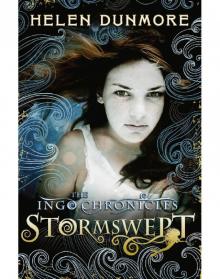 The Ingo Chronicles: Stormswept
The Ingo Chronicles: Stormswept The Deep
The Deep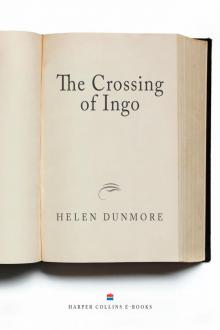 The Crossing of Ingo
The Crossing of Ingo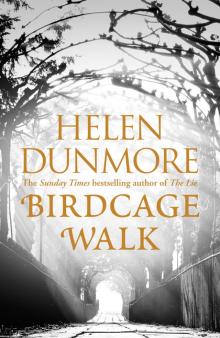 Birdcage Walk
Birdcage Walk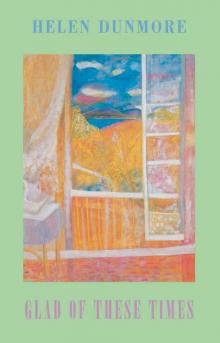 Glad of These Times
Glad of These Times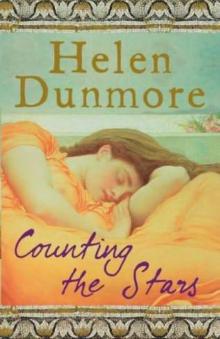 Counting the Stars
Counting the Stars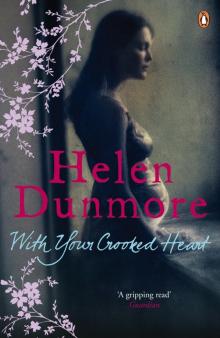 With Your Crooked Heart
With Your Crooked Heart Burning Bright
Burning Bright House of Orphans
House of Orphans Mourning Ruby
Mourning Ruby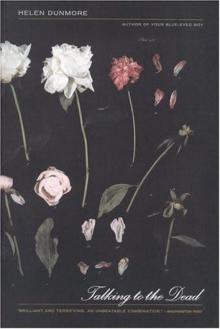 Talking to the Dead
Talking to the Dead Exposure
Exposure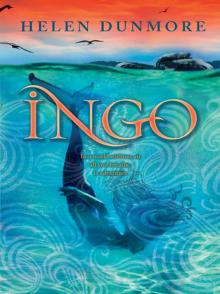 Ingo
Ingo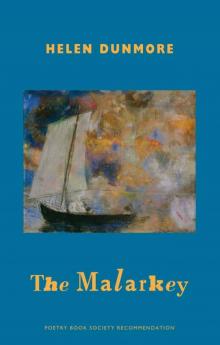 The Malarkey
The Malarkey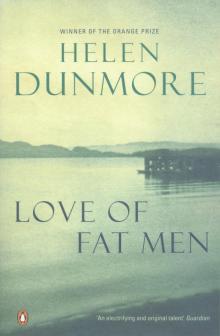 Love of Fat Men
Love of Fat Men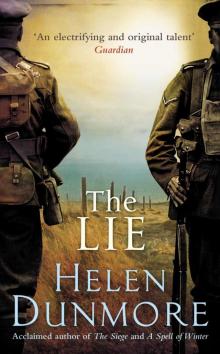 The Lie
The Lie The Siege
The Siege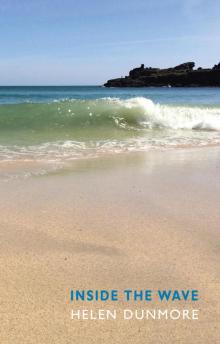 Inside the Wave
Inside the Wave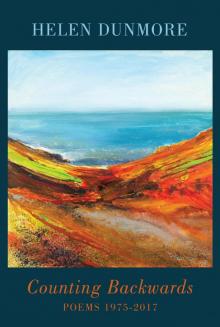 Counting Backwards
Counting Backwards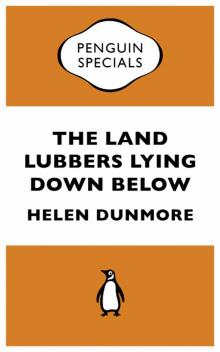 The Land Lubbers Lying Down Below (Penguin Specials)
The Land Lubbers Lying Down Below (Penguin Specials)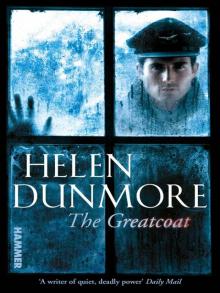 The Greatcoat
The Greatcoat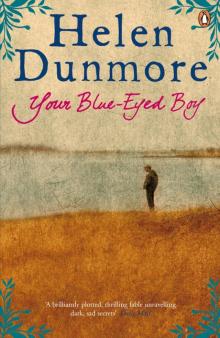 Your Blue Eyed Boy
Your Blue Eyed Boy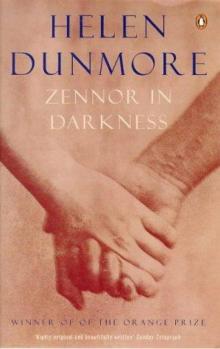 Zennor in Darkness
Zennor in Darkness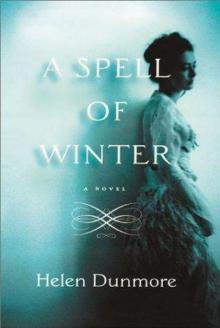 Spell of Winter
Spell of Winter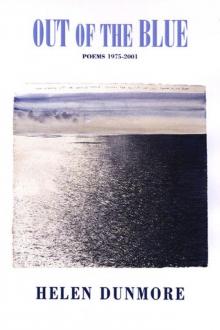 Out of the Blue: Poems 1975-2001
Out of the Blue: Poems 1975-2001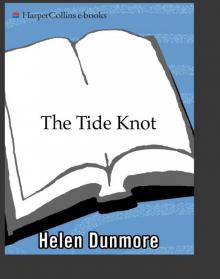 Tide Knot
Tide Knot The Betrayal
The Betrayal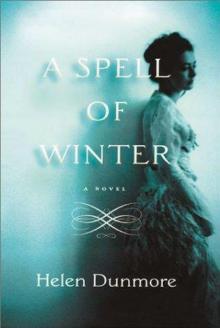 A Spell of Winter
A Spell of Winter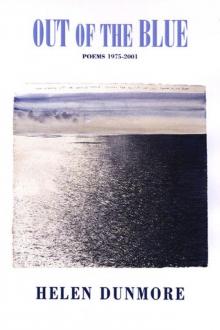 Out of the Blue
Out of the Blue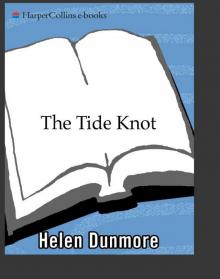 The Tide Knot
The Tide Knot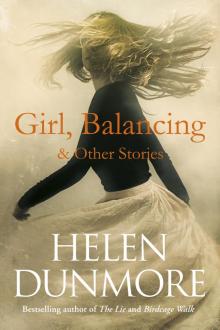 Girl, Balancing & Other Stories
Girl, Balancing & Other Stories Betrayal
Betrayal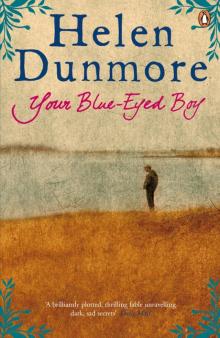 Your Blue-Eyed Boy
Your Blue-Eyed Boy